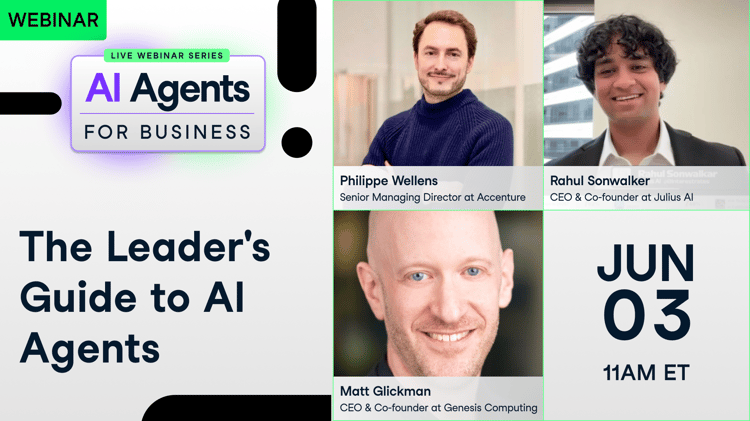Speakers
Training 2 or more people?
Get your team access to the full DataCamp library, with centralized reporting, assignments, projects and moreAI Agents For Business: The Leader's Guide to AI Agents
June 2025
Related
webinar
AI Agents For Business: Best Practices for Building AI Agents
John Ratzan, Senior Managing Director at Accenture, and Sam Khalil, Co-Founder & Managing Director at ekona, discuss how to build and deploy AI agents that work in real business environments.webinar
AI Agents For Business: AI Agents and the Future of Work
Sanjay Srivastava, Chief Digital Officer at GENPACT, and Marianna Bonanome, Head of AI Strategy & Partnerships at SandboxAQ, discuss how AI agents are transforming business operations and workforce planning.webinar
Artificial Intelligence for Business Leaders
We'll answer the questions about AI that you've been too afraid to ask.webinar
AI In The Enterprise: AI Strategies That Create Value
Lexi Reese, CEO & Co-founder at Lanai and Krunal Patel, Chief Product Officer & Co-Founder at Bordo AI explore what makes an AI strategy successful.webinar
Leading with AI: Leadership Insights on Driving Successful AI Transformation
C-level leaders from industry and government will explore how they're harnessing AI to propel their organizations forward.webinar


